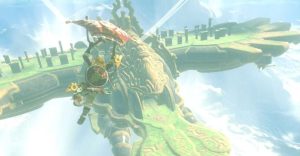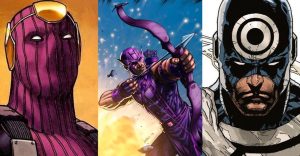Tabletop RPGs Set In The Chinese Wuxia Genre

Passionate feuds between clans of flying martial artists, tragic lovers from rival sects, friends torn apart by their codes of honor; these are the hallmarks of the Chinese Wuxia genre seen in stories such as Crouching Tiger, Hidden Dragon, stories that tabletop gamers can recreate using Hearts Of Wulin or other Wuxia RPGs. These tabletop game system feature combat rules for recreating the physics-defying martial fights the Wuxia genre is famous for, and social rules for recreating the romances, rivalries, and torn loyalties equally iconic to this uniquely Chinese style of fiction.
Wuxia, a mainstay of popular Chinese fiction for centuries, achieved literary renown thanks to works like the Condor Heroes Trilogy by Jin Yong, and popularized internationally by TV and movie adaptations like Crouching Tiger, Hidden Dragon (originally a 1930s novel by author Wang Dulu). Wuxia fiction is often viewed by American fans as the Chinese equivalent of Western fantasies like The Lord Of The Rings by J.R.R. Tolkien. Culturally, however, Wuxia is more akin to Wild West paperbacks and superhero comic books.
Like the American Western genre, Wuxia (武侠, meaning “Martial Chivalry” or “Martial Heroes”) takes place in a romanticized version of the past, a pre-modern China with a secret underground of chivalrous heroes, bandits, and reclusive sects called the “Jianghu” (江湖, meaning “The Rivers and Lakes”) or the “Wulin” (武林, meaning “Warrior’s Forest”). Unlike Wild West gunslingers, the protagonists of Wuxia stories are capable of superhuman feats thanks to their esoteric martial arts, disciplines that let them glide through the air, paralyze people with a touch, or shatter stone with a palm strike. Just like superheroes, these “Youxia” (游侠, meaning “wandering heroes”) use their abilities to protect the weak, punish corrupt officials, and fight off armies of goons.
Many fantasy tabletop RPGs are influenced by the Wuxia genre in one form or another. The “Monk” class from Dungeons & Dragons has many of the iconic abilities seen in Wuxia fiction – leaping vast distances, paralyzing foes with unarmed strikes, etc. Mythic fantasy RPGs like Exalted or Legend Of The Five Rings frequently blend the martial arts action seen in Wuxia fiction with the worlds of gods, demons, and sorcerers seen in Chinese fantasies like Journey To The West. That being said, Wuxia is more than just a collection superhuman martial arts battles; it’s also a genre about passionate individuals who suffer for not conforming to tradition, patriots frustrated by the corruption in their home countries, lovers torn apart by their clashing families, and fond friendships fractured by painful secrets. In short, Wuxia is very melodramatic, and the following RPGs embrace this melodrama in their rules and premises.
Tabletop RPG: Hearts Of Wulin

Hearts Of Wulin is a recently released Wuxia-genre tabletop RPG published by The Gauntlet Gaming Community, built around the narrative-focused “Powered By The Apocalypse” system. Set in a timeless version of historical China filled with wandering heroes and gallant martial artists, Hearts Of Wulin uses special “Playbooks” to represent Wuxia character archetypes and special rules called “Moves” to resolve the perils and and conundrums commonly seen in Wuxia narratives.
Character attributes are themed around the five classical Chinese elements (Earth, Fire, Water, Metal, Wood), any of which can be used to attack an enemy depending on the tactic or martial arts technique used. Hearts Of Wulin‘s Playbooks, with names like the “Aware,” “The Bravo,” or “The Student” are themed around personalities such as the calm sage, the playful trickster, or the loyal apprentice; each Playbook has Entanglements that reflect the complicated, conflict-generating bonds between PCs and NPCs in the campaign.
Tabletop RPG: Legends Of The Wulin

Legends Of The Wulin, published by Eos Press, is a spiritual successor to their Weapons Of The Gods RPG, an official adaptation of the eponymous Wuxia “Manhua” comic. Players of this RPG take on the role of wandering heroes wandering the “Rivers and Lakes” of Shenzhou, caught up in battles between good and evil, orthodox martial arts vs. heretical martial arts, and social responsibilities vs. individual desires.
Character creation in Legends Of The Wulin is centered around choosing a character class such as Warrior, Priest, Doctor, Scholar or Courtier, then combining an external and internal martial arts discipline into unique fighting style. The combat mechanics for Legends Of The Wulin, centered around rolling dice pools of D10s and counting up matching numbers, are designed to resolve physical, mental and social duels, letting player damage their enemy’s flesh, disrupt their Qi, introduce doubt into their minds, or inflame their passions.
Tabletop RPG – Tianxia: Blood, Silk & Jade

Tianxia: Blood, Silk & Jade (“天下,” meaning “All Under Heaven”) is a fairly light-hearted Wuxia RPG published by Vigilance Press, built around the open-source FATE system created by Evil Hat Productions. Players in this game are heroic outlaws, monks, soldiers, magistrates, and physicians who use their martial arts to protect the innocent and punish the unrighteous in their home province of Jiangzhou.
In Tianxia: Blood, Silk & Jade, the relationships between players characters and NPCs are represented by narrative descriptions called “Aspects,” while signature martial arts are created by choosing different “Stunts” from ability lists themed around elemental forces and animals (a PC with one “Stone” Stunt and one “Crane” Stunt practices “Stone Crane Style”).
Tabletop RPG: Righteous Blood, Ruthless Blades

Righteous Blood, Ruthless Blades, a Wuxia RPG designed by Jeremy Bai and Brendan Davis, is specifically modeled after the fiction of Gu Long, an author from Taiwan famous for his concise writing style and gritty, noir approach to the Wuxia genre.
PCs in Righteous Blood, Ruthless Blades can be customized to an intricate degree thanks to the lists of occupations, signature abilities, skills, and eccentricities players can choose from, and skill checks are generally resolved by rolling a pool of D10 dice and comparing the highest result to a target number.
A fair warning: the narratives of Righteous Blood, Ruthless Blades campaigns tend to be bloody and grim compared to Wuxia movies like Crouching Tiger, Hidden Dragon and other RPGs in this article, thanks to mechanics that explore vices such as gambling and drunkenness, along with social mechanics focused around grudges, rivalries, and revenge.
Source: Jeremy Bai.com, Vigilance Press, The Gauntlet, Drivethru RPG
About The Author

















